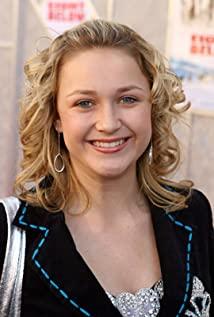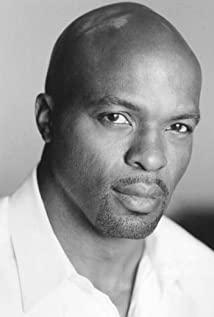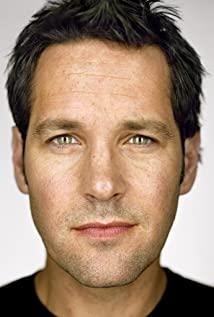Recently I started to read this novel by chance, and I was moved hysterically.
In St. Claus, births and abortions are "God’s work."
Dr. Webber Lachy prays for the orphans every night: "Good night, you princes of Maine, kings of New England, good night "The
final outcome is this:
"For Nurse Edna, who has a crush on Dr. Ludge, and Angie, who has never crushed him but named Homer Welsh and Fuzzy Stone with her own wisdom. As far as Nurse La is concerned, neither Dr. Stone nor Dr. Ludge have any heart problems. They are both the'Prince of Maine' and the'King of New England'."
So far, the picture of the movie has been blurred in my mind. I remember the colors that are always soft, understatement and the brilliance that is always autumnal, Toby's naive and elegant, and the immaturity of the joys, sorrows, sorrows and joys written on his face.
I just knew that before the script was adapted, he was not the absolute protagonist in the movie.
In St. Claus, everyone left, and the rest must say in evening prayer: "Let's bless XX, XX has found a home. Good night." In the
end, when Homer always On the night when he returned to the orphanage and became the "Dr. Stone" who took over as Dr. Ludge, he took the children to give an evening prayer:
"Let’s bless Dr. Ludge. Dr. Ludge has found a new home. Good night, Dr. Ludge." He will certainly not forget the sentence now and in the years to come:
"Good night, you princes of Maine, kings of New England." Homer knew it when he was a child, the real The princes of Maine and the kings of New England are ruling St. Claus.
Pregnant women come to this remote orphanage, and they can choose to give birth to the child as an orphan or have an abortion. Abortion was illegal at the time, and it was called "the work of the devil", and it was the opposite of the "work of God" during childbirth. Based on a series of experiences, Dr. Lachi, who graduated from the Department of Obstetrics and Gynecology of Harvard University School of Medicine, is finally engaged in both "God's work" and "Devil's work", which in his own words is all " God's work".
This story gives everyone and everyone care. Those who are prostitutes, drunks, loggers, stumbled women, orphans, Lithuanian immigrants, old women engaged in illegal abortion, black employers who have been in the plantation...people who are often not paid attention to. The description of the process of underground abortion in the alleys and the various tragic deaths of women due to unscientific abortions are particularly thrilling. But Dr. Ludge, and later Homer, engaged in "devil's work" because of seeing too many such thrills. At first, when Homer knew for the first time that Dr. Ludge, whom he admired and loved him so much, was doing "the devil's work," he did not forgive him. Later, when Homer also encountered a situation that was almost the same as that of the young Doctor Ludge, he had no choice but to "just do it quickly and not pull it down", and when he finally returned to the St. Crouch Orphanage When sitting in the dean’s room and consulting room where Dr. Raqi used to sit, he was destined to take the path of Dr. Raqi, taking over the doctor’s mission, helping orphans and helping women who stumbled. Dr. Laki, who has been ascetic for his entire life, has always known that violence or ignorance has created them. The society has treated them so harshly and has never given them a chance to correct themselves, so that they have to pay such a painful price or even die. They should be cared for. Give them a chance to choose,
"I am a doctor, just help them, no matter if they are orphans in the future or come to abortion."
Homer's transformation may be hinting at society's transformation of these disadvantaged people.
When the god-like Saint Lucky died, there was nothing, even the only Homer in his life who had loved him as a son did not answer the call back. It was the nurse Edna who had been in love with him and had turned into an old woman who found the body of Dr. Laki who died of suffocation after inhaling ether. The farewell to St. Lucky is simple, and the farewell to everyone who leaves St. Claus,
"Let’s bless Dr. Lachi, Doctor Lachi has found a new home. Good night, Doctor Lachi."
Orphans need a stable life, and Doctor Lachi has always worked hard to establish a regular life for the orphans. Therefore, Nurse Angela, Nurse Edna, Mrs. Grogan, and Nurse Caroline did not tell them about the death of Dr. Ludge, and Homer knew this very well later. However, the ascetic hermit-like Doctor Raki has become God, and the "work of God" he is engaged in is definitely not leaving nothing behind. At least Homer and the old and young women who work in St. Claus don't think so. Dr. Ludge has always said to Homer that you have to be a useful person. Homer has always believed that orphans came to this world to be a useful person. To become another Saint Lucky, that must be a useful person.
The love of Homer, Huali and Kandy is great and pure. When Homer and Candi’s own son were sitting on the roof of the cider house at the end, Candi and Huali were sitting together on the ruins of the abandoned wharf. Homer said, son, I will take everything I'll tell you everything, Candy hugs Huali's waist from behind, and whispers to him on the shoulders, Huali, I love you, I will tell you everything. If there is any difference between the successor, Dr. Stone, and Dr. Ludge, it is that he does not tend to be a saint. Weber Lach is abstinent, does not smoke, does not drink, has no family, wife, children, and is alone all his life, while Homer Wales has everything. Every Christmas, he can spend with his son, Candi, Huali, and their children in St. Claus.
Sunshine eventually became a hero as the people who loved him expected.
According to the rules of St. Lucky and Homer, both births and abortions are "God's work."
According to the rules of the people of St. Claus, the orphan and the ruler of St. Claus are both the "Prince of Maine" and the "King of New England."
In fact, no one has ever understood the rules posted in a cider house. Everyone has their own rules.
View more about The Cider House Rules reviews











